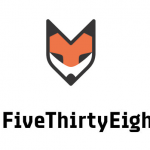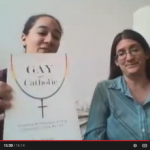While I wait to see if my post yesterday (“Are Atheists a Side?“) satisfies Dom, the commenter I was trying to address, I thought I’d share thoughts a recent piece I wrote for HuffPo (especially as I’ve written about Glee here before) and I’ve asked a few questions about religious communities at the end of this post.
The article, titled “Glee’s Gay Suicide PSA: It Got Worse” focused on the troubling example Kurt, the gay character, set for viewers, when he decided he had a duty to confront the football jock who was has been physically harassing him. An excerpt:
I hate to imagine a queer student living in a bad school district who watches Glee and decides that s/he has a responsibility to confront his/her tormentors. Children, particularly children already being targeted, do not have a duty to put themselves in danger to try to be an object lesson. People who are abused or harassed do not have an overriding responsibility to redeem their abusers; they have a responsibility to protect themselves and flee if necessary. Telling them that they have a responsibility to confront students who have threatened them puts them at risk for serious injury.
A case can be made that queer adults do have an obligation to come out and confront bigots. This is the goal of National Coming Out Day, which tries to undermine harmful perceptions of queer people by reminding straights that there are gay people in your everyday life, and they do not match the slurs. In the Gus van Sant biopic Milk, one of the most powerful moments was when Harvey Milk forces a volunteer to come out to his homophobic family, telling the volunteer that he needs to set an example by outing himself and showing his parents that queers are people.
I looked primarily at the very practical consequences of the episode, but the two guys at ProjectRungay had a very different read of the episode, and of the new character’s song (embedded below) that’s worth consideration.
http://vimeo.com/18380482To the straight people reading us: remember high school? Remember your favorite songs and movies, TV shows and music videos from that period? Imagine if all of that media bombardment telling you what to like, what to wear, and how to be attractive, popular, and cool, imagine that all of that aimed for and addressed everyone else but you. Imagine what it’s like when every sappy love song (or angry breakup song), every rom com, every trendy TV show and blockbuster movie, even every video game, imagine if they all depicted a form of romantic love that simply isn’t available to you. Imagine going through high school without even so much as a hint of yourself reflected in any of the things you watch and listen to, any of the things that literally every other kid is talking about. Imagine the one thing you want more than anything in the world: to be kissed, please god, just to be kissed, imagine you have never seen that depicted anywhere or referred to in any way but as something to be mocked and shunned.
We grew unexpectedly teary-eyed watching this number. Not because sappy teenage pop songs get us worked up, but because the sight of a sappy teenage pop song being sung by one cute teenage boy to another cute teenage boy is still, sad to say, an extreme rarity. All we could think while watching this number was, “My god. What would it have been like to see this at 14?” To have the media offer up a romantic fantasy that actually reflected what we secretly yearned for.
Having a community that shares a belief, an orientation, a common set of references is incredibly affirming, and its absence can be as devastating as the bloggers at Project Rungay say. Building communities and cultures takes a tremendous amount of work (as I wrote in the excerpt above, coming out is necessary for the gay community to reach a visible, critical mass and start on this project).The college I attend does not have any kind of school-wide religious community, and many of the religious groups on campus have a primarily social, rather than theological, focus. I know some of my Christian friends have felt isolated on campus, cut off from the strong, ubiquitous presence of faith in their homes.
I’d be curious to know to what extent religious or atheists readers of this blog have found communities centered on their faith or atheism in their day to day life.
Are these communities self organized or affiliated with larger institutions or movements?
Do online groups help as a release valve? Are they sufficient on their own?
Are atheists interested in being in communities centered on atheism in the first place?















